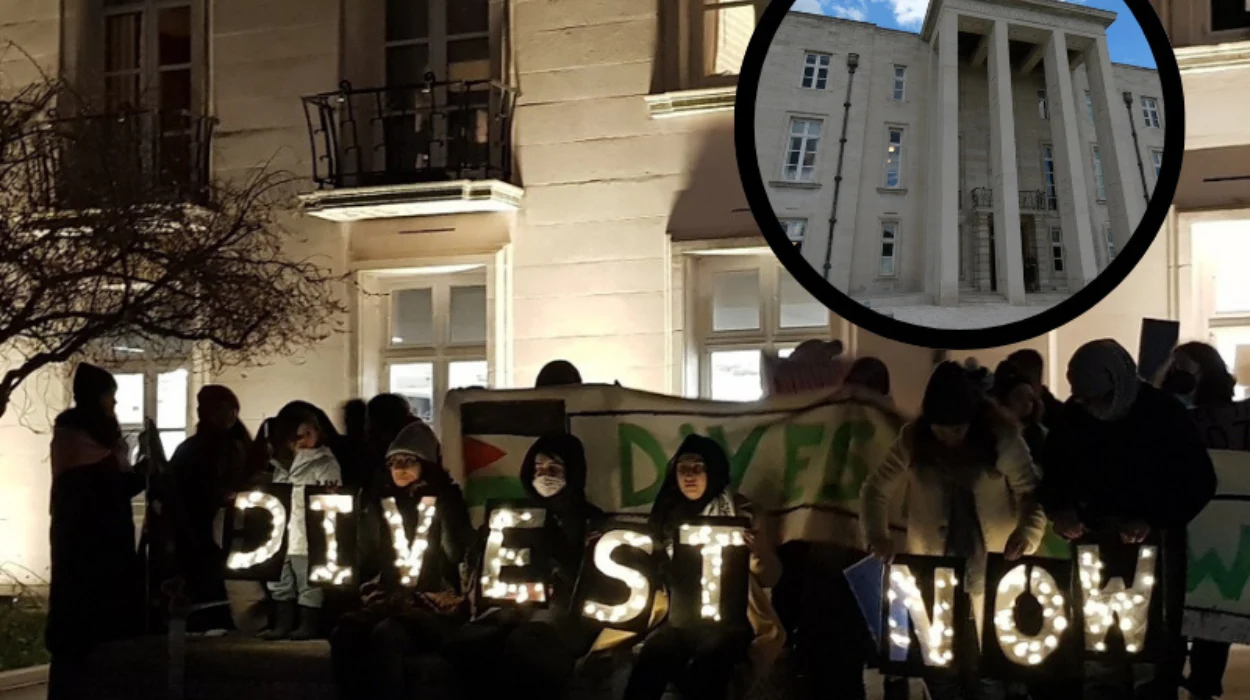Waltham Forest (Parliament Politics Magazine) – Waltham Forest Council’s pension committee faces criticism for slow progress on divesting from arms companies, despite agreeing to explore options last July.
Waltham Forest council members see the slow pace of divesting from businesses connected to possible human rights violations as “frustrating.”
In response to lobbying from Waltham Forest For a Free Palestine (WF4FP), the council’s pension committee decided last July to investigate removing its money from businesses associated with ongoing hostilities.
Though progress has been gradual, it is now the only council to approach the London Collective Investment Vehicle (LCIV), which manages the pension funds of all 32 borough councils in London, regarding divestiture.
The council requested a schedule from the LCIV in November regarding when it could consider removing funds from businesses that might have been “exposed” to violations of human rights.
Although it was a “very immediate priority,” an LCIV representative informed the committee last night that they “could not say it will be concluded by ‘X’ date.”
Due to “financial implications,” the LCIV would have to leave a unified pool of investments rather than withdrawing from individual enterprises. The council had already received a warning that its financial condition could be negatively impacted by divestiture.
The Labour councillor for Markhouse ward and committee chair Johar Khan described the pace of advancement as “frustrating.”
Councillor Keith Rayner said:
“We have a role as guardian of the pension pot to make sure we maximise income. We need to know how soon we can pull out, without puting a huge dent in the pension pot itself.”
As the Israel-Hamas conflict intensified, pressure mounted on Waltham Forest Council to alter its investments.
More than 43,000 Gazans were killed in an October 2023 attack that prompted Israel to launch a fierce counterattack against Hamas, the Islamist organization that rules Gaza.
Western opinions were divided by the war, which Amnesty International called a genocide. Following a ceasefire deal in late January, the fighting has gradually subsided.
She added that the LCIV “really needed to understand [the situation] better” and was working on a policy that says “we are happy to invest in these companies, but not these”.
She claimed that a dozen “wide-ranging” businesses, including JCB and Microsoft, had been singled out as “particular targets.”
However, she acknowledged, some might be “doing relatively vanilla things” or supporting “perfectly legitimate civilian communities” in both Israel and the Palestinian territories.
It “does not need to take another year,” according to Councillor Justin Habibi, and the “very least we need to bring to the table” is a plan.
The committee was informed that other councils, known as the “partner funds” of the LCIV, had adopted a variety of positions on the matter.
According to the representative, some felt it was “inappropriate” to base investment decisions on “political issues,” while others shared the desire to “reduce exposure” to possibly complicit corporations.
About 100 WF4FP activists demonstrated outside the town hall before the meeting. They carried signs that said, “No divestment, no vote,” referring to the May municipal elections.
“People want to see concrete steps to divestment beyond just arms companies,” a campaign representative stated.
A larger commitment to match the council’s investment practices with its moral principles in the face of growing worries about the humanitarian effects of the Israel-Palestine conflict included this decision.
She told the Local Democracy Reporting Service:
“We had our biggest protest turnout yet as people turned up in the cold, to break their fast, and let the council know we’re not going anywhere until full divestment from complicit companies is done.
Despite challenging the LCIV on timelines and ethical divestment during the meeting many times, the pension committee failed to instruct the LCIV to make a new fund and instead focused on the LCIV’s lack of progress.
We wait to hear more about the 12 complicit companies the LCIV have identified for divestment.”
In November of last year, the council adopted its own definition of the arms trade, which includes businesses that make money by selling “controversial weapons,” such as chemical, biological, and incendiary weapons.
By March 2026, it hopes to have sold these.
In 2022, Waltham Forest became the first council to completely divest from businesses associated with fossil fuels. It was a similarly long procedure that started in 2016 and took six years to complete.
What are the details of this issue?
About £773,000 of the £1.1 billion pension fund, according to the Waltham Council, was invested in companies that might profit from the sale of war-related weapons.
In order to address these issues, the committee decided to amend its ethical investing policy.
WF4FP was instrumental in promoting this divestment, collecting more than 3,000 signatures on their petition and inspiring locals to support moral investment practices.
Through the London Collective Investment Vehicle (LCIV), the council intends to interact with other local governments in order to promote comparable divestment initiatives throughout the city.
The pension committee has pledged to examine all investments related to violations of human rights and seeks to set a deadline for complete divestiture from businesses found to be involved in such practices.

